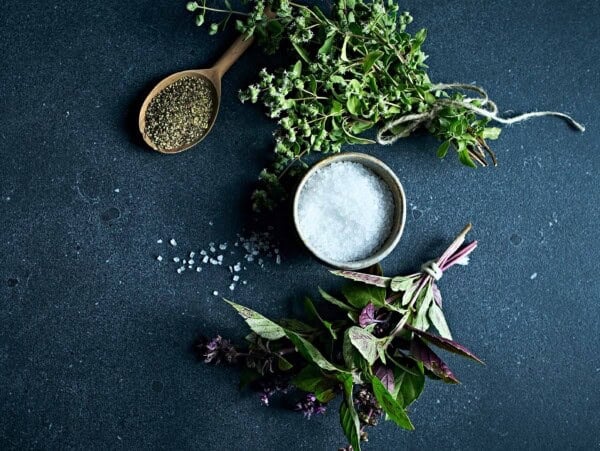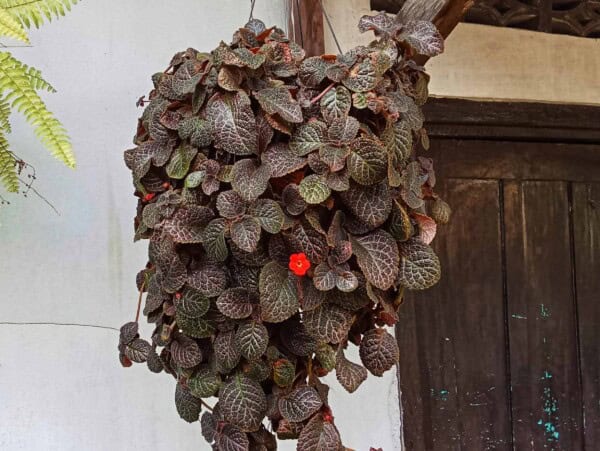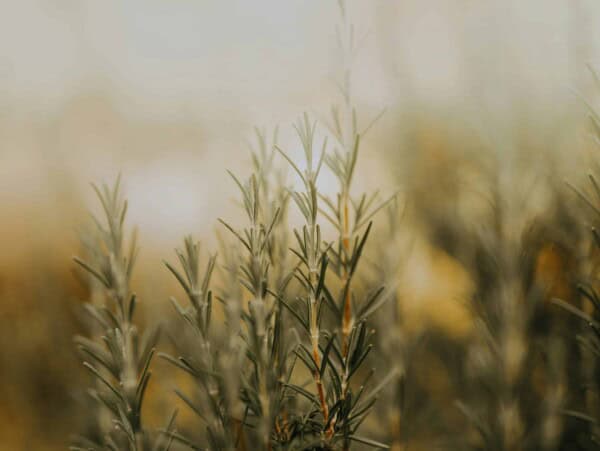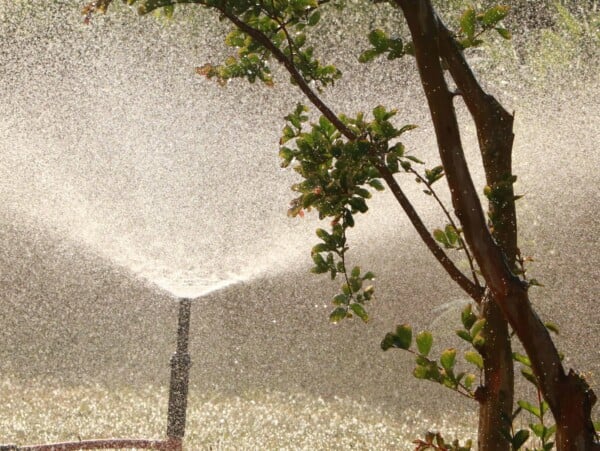Whether you’re busy decorating inside or outdoors, trying to make your home look the best that it can seems to always be an ongoing project! Recently, I’ve been trying out some new gardening ideas for side of house at our cozy cottage, which is what inspired me to write this article for you guys.
I started thinking. What are some great things to grow around your house? Just as important, what’s the best way to go about it? Well, if you’ve ever had these or similar questions, you’re in the right place.
Keep reading for ideas, inspirations, and instructions!
Gardening Ideas for Side of House – Start with a General Layout
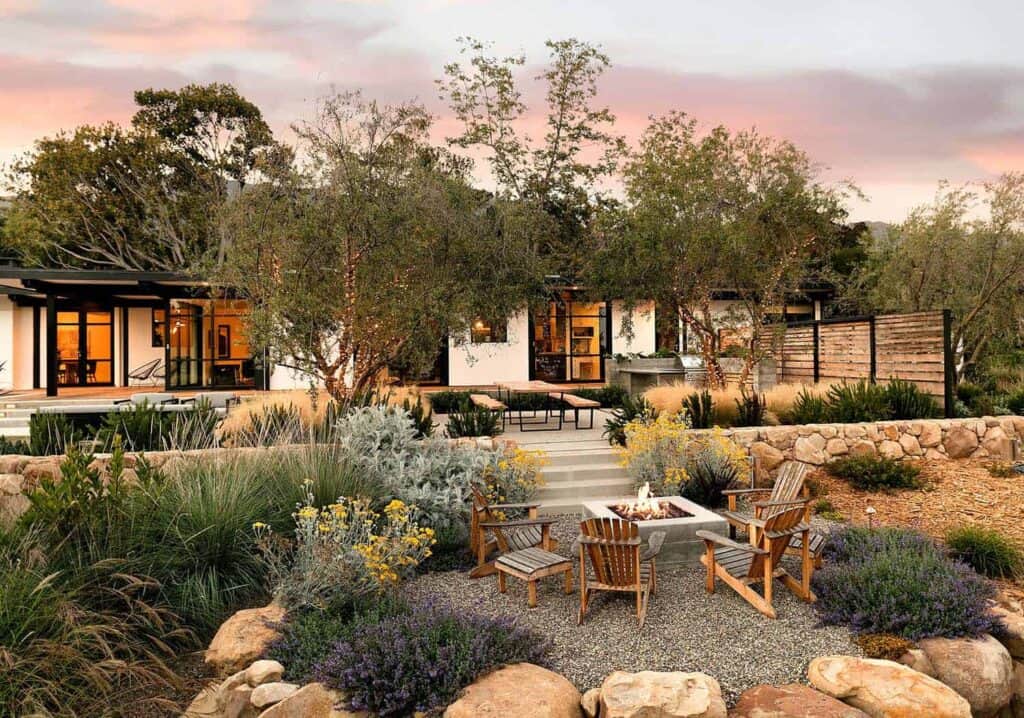
Even if you already have specific gardening ideas for side of house or for your front yard, I recommend starting by making a general layout first. Yes, figuring out which flowers go in which garden beds is important, but it’s best to start with a comprehensive layout of areas & structures first.
This layout should include your front yard, side yard, and backyard, complete with any dedicated outdoor area you might want to make. You’ll want to make note of any existing walkways, especially in small yards, as functionality is an important consideration.
Once you have the outline of your yard sketched out, you can start implementing some of the changes below to instantly boost your home’s curb appeal!
The Walkway
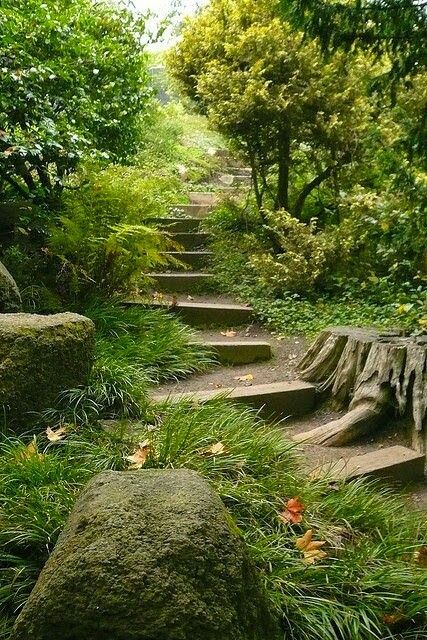
Chances are, your home gets a lot of foot traffic. For most people, the majority of foot traffic is in the front of the house. That said, you might be like me, where the side of your house gets a lot of use as well.
On the sides of a house, the walkways and pathways mainly serve functional purposes. However, in the front, the walkway leading up to your front door often serves as a focal point. With that in mind, you’ll want to make it as impressive as possible.

Consider planting small trees next to your walkway as a long-term investment. These will look absolutely amazing once your walkway is lined with mature trees! For faster results, consider upgrading your walkway with new pavers, slabs, or steps.
Optimize the Landscape for Gardening Ideas for Side of House

It’s important to make the most of your current landscape. Whether you have higher points, lower points, or a completely flat lawn, you can build on your yard’s strength with a bit of landscape design.
You can take your gardening ideas for side of house to the next level by designing around existing textures and features such as gravel beds or tree roots. Attractive foliage you already have can be trimmed up and refined.
Sometimes, though, less can be more. Having large open spaces bordered with shaped hedges or adorned with trees can look amazing. Since any large area or outdoor space is likely to have grass, make sure you’re caught up on your lawn maintenance as well.
Gardening Ideas for Side of House Consider Ornaments & Extras

It’s good to have a wide variety of plants on display in your yard, but having too much variety can become visually overwhelming. Fortunately, by using ornamental grasses, native plants, and fern plants, you can fill in a lot of empty space without overdoing it.
Another great way to add consistency is by erecting some fencing, which can establish clear boundaries between sections. Placing a garden shed is another solid way to design your space, as you can turn the surrounding area into its own section.

If you’re working with a lot of land then I might suggest implementing a water feature. They’re expensive, but having an artificial pond, artificial stream, or even a decorative fountain can instantly make your home feel more serene.
Make a Private Seating Area – Great Gardening Ideas for Side of House
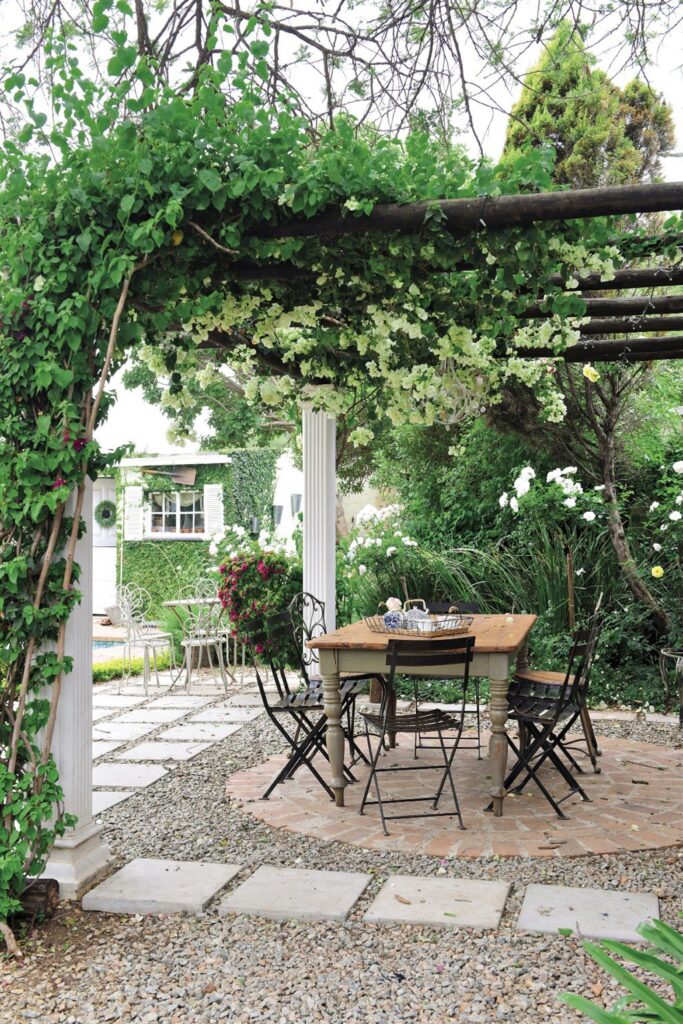
You might already use an existing patio or deck as your designated outdoor seating area. If not, consider setting up your own private space instead. Full shade or partial shade is generally preferable, but you’re not limited only to shady areas if you don’t mind a bit of sun.
Having a designated outdoor area will give you a place to sit outdoors. Let’s be honest: most of us don’t spend as much time outdoors as we would like. Personally, I think having a dedicated outdoor space is invaluable for your mental health.

Of course, you can adorn the area to your liking. Handpicked flowers, sculptures, or rock gardens are all great options.
Pick a Color Scheme
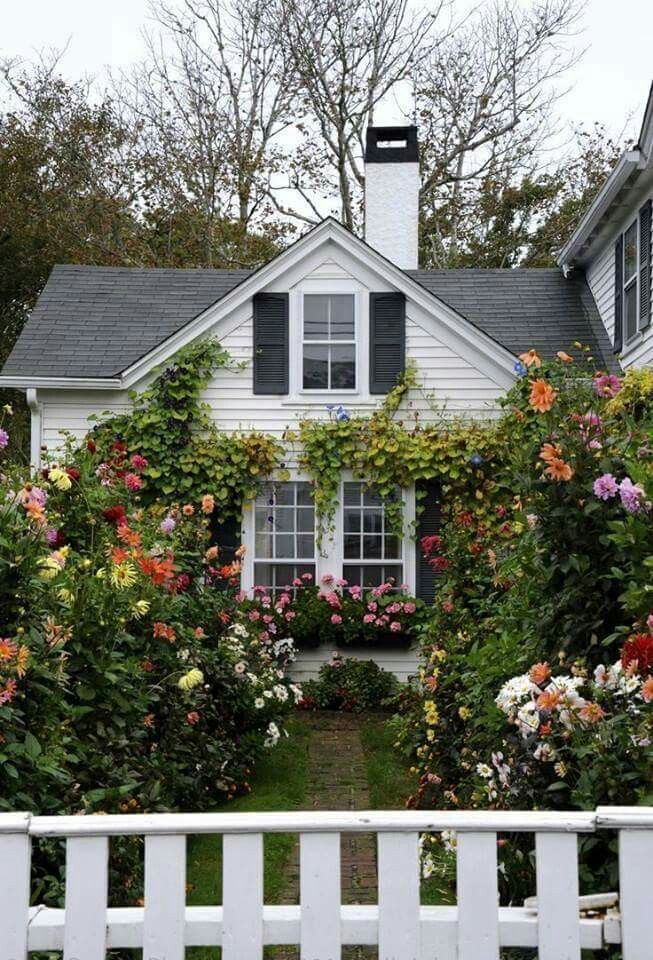
When you pull open your living room drapes, what colors do you want to see through the window? Purple flowers? Blue flowers? A mixture of colors?
You have plenty of options to try, especially if you’re working with a lot of space. You could dedicate the entire area to one particular color scheme, or use different color combinations in different areas.
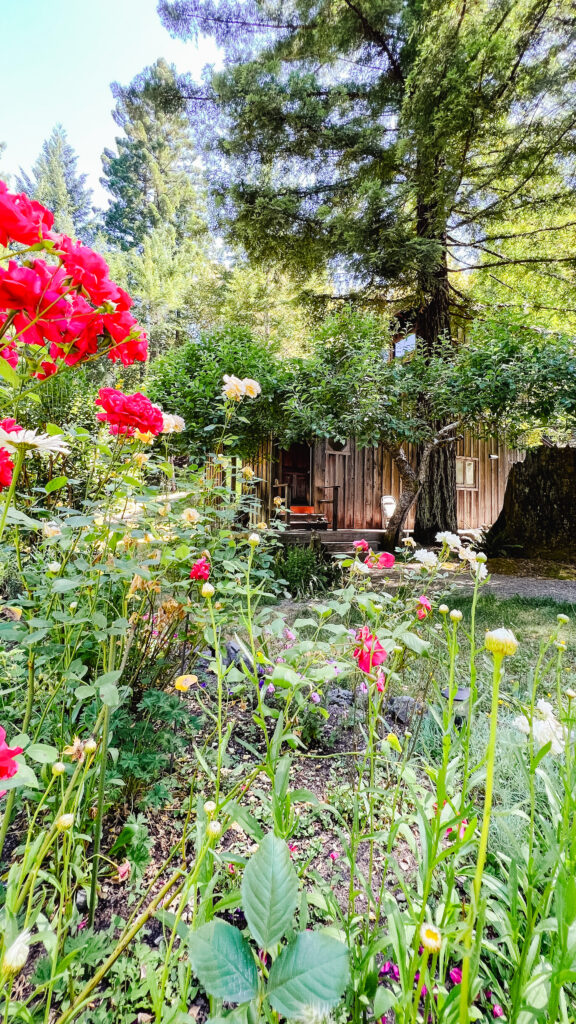
Implementing accent colors is also one of the better gardening ideas for side of house. I recommend using something like iScape if possible, as this will allow you to “preview” your designs before you invest in them.
Perennials vs Annuals What to Think About for Gardening Ideas for Side of House
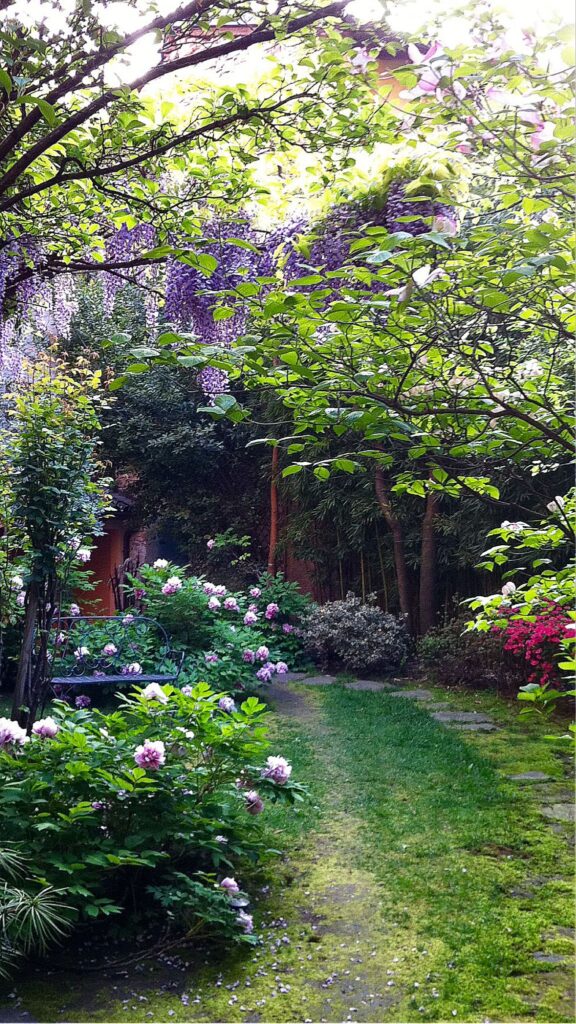
Both perennials and annuals offer distinct advantages, although you don’t have to commit to either one. In fact, using a mixture of both can be a great way to minimize your overall workload while still keeping your landscape looking fresh!
Since annuals only last for a single year, these flowers can be great for giving a small garden its yearly refresh. Simply plant them, watch them grow, admire them, and then figure out what you want in that space for the next year.
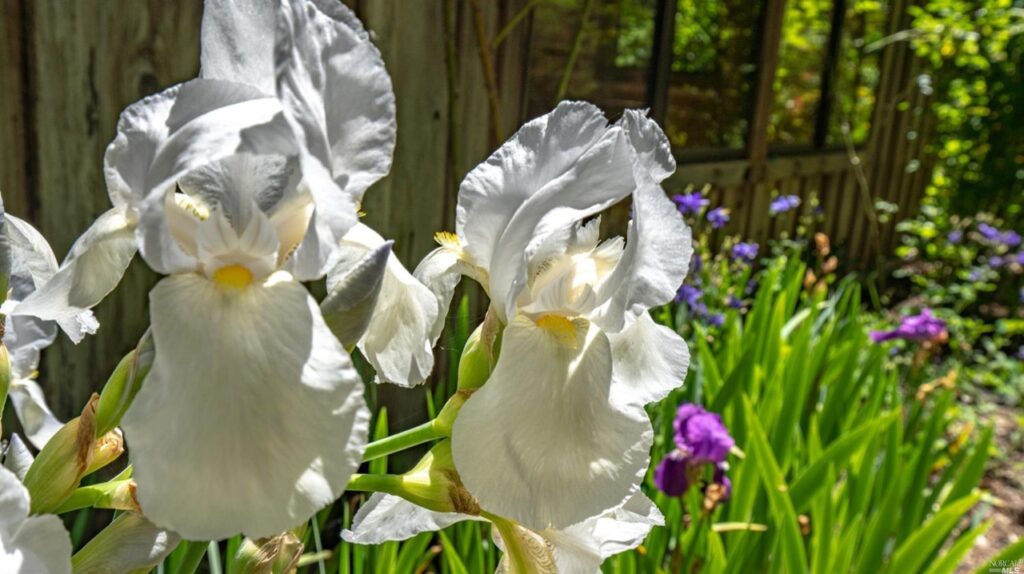
Perennials are a bit different. You might think that when the seasons change and winter swings around, perennials would die, but that’s not the case. Once the snow melts and the weather warms, these flowers will be back to bless your yard again.
For that reason, I recommend perennials for less prominent side gardens that don’t necessarily need a yearly refresh.
The Best Backdrop

You’ll need to consider the backdrop of your plants if you want to make them pop. I’m talking specifically about what’s right next to and under the flowers themselves.
Obviously, you’ll want to first make sure that the basic requirements are met. Some plants require moist soil, others want well-drained soils, and some can grow pretty much anywhere. Make sure that’s set, and then you can move on to ground cover.

Mulch is offered in a variety of colors that can really help your plants pop. Gravel or stone might be a suitable alternative for some more hardy plants. If you don’t have any plants there already but want to fill up the space anyway, consider getting dedicated ground cover plants instead.
Plants & Placement
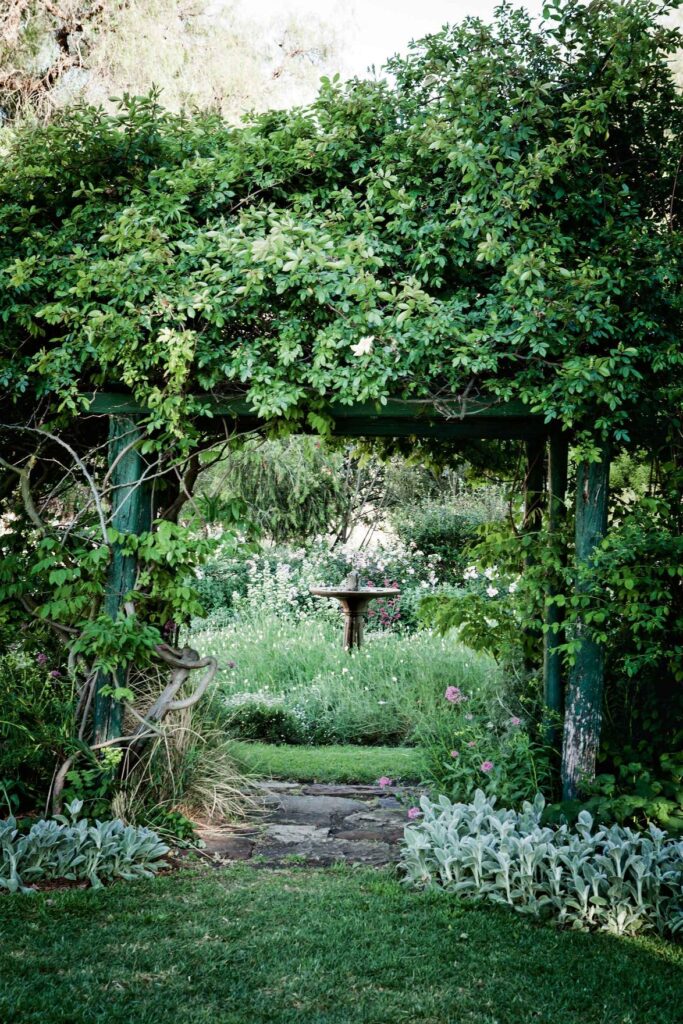
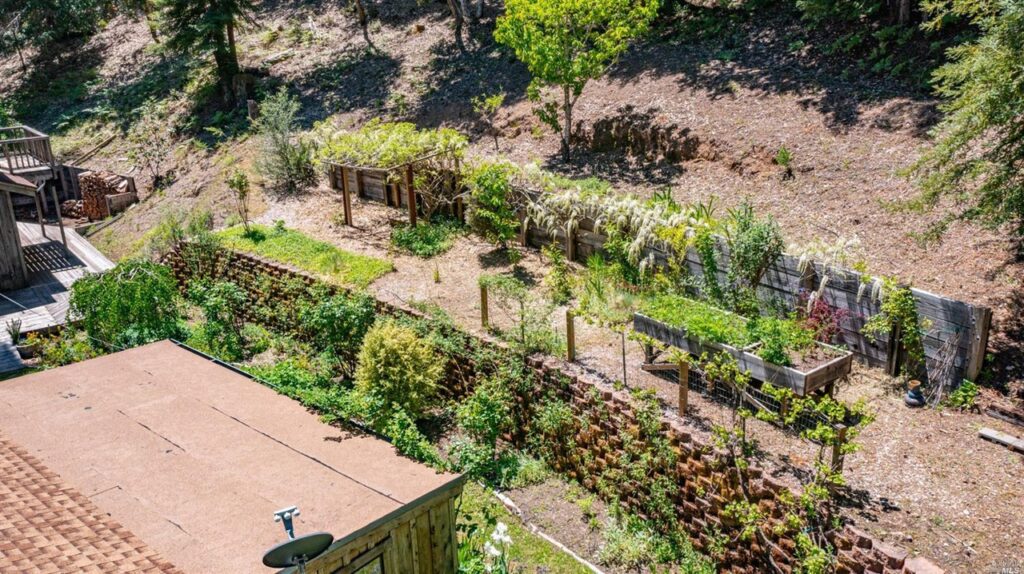
By now, you hopefully have a general idea of the space you’re working with, the type of flowers you want to get, and how you want to arrange your yard. Now that we’ve figured out the basics, let’s move on to more specific gardening ideas for side of house, front of the house, and rear of the house.
Rows & Patches
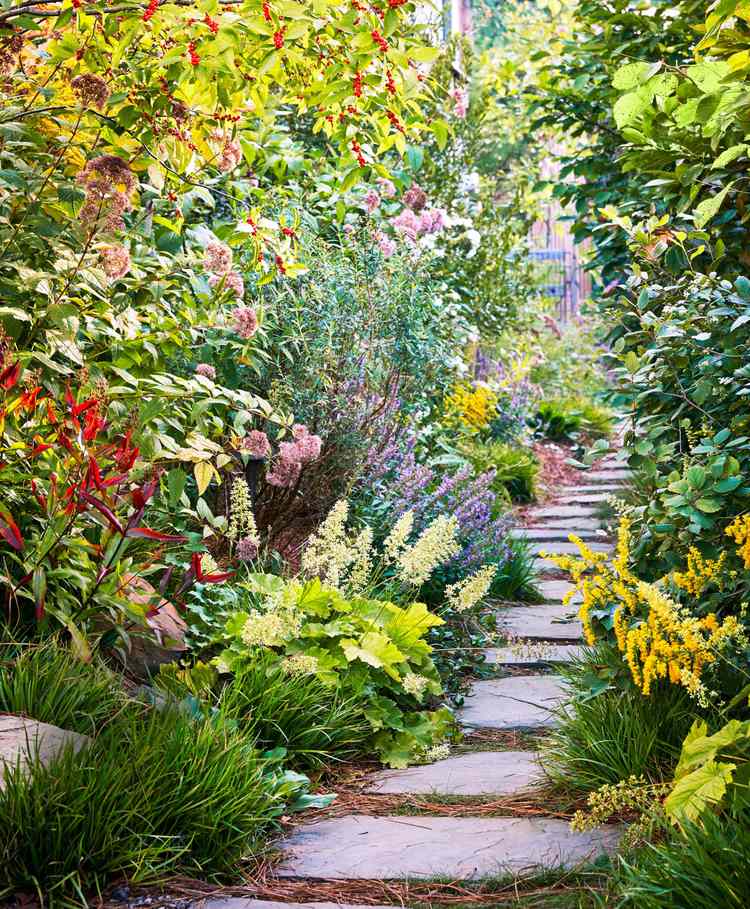
How you arrange your flower garden will help change how you perceive the area. Two great ways to arrange your flowers are in rows or in patches.
Rows of flowers are excellent at making an area seem longer. They can also be shaped around the natural contours of the land, making it easy to designate walking paths and other points of interest.

Placing your plants in patches is a bit different, as every patch will essentially “stand on its own”. This isn’t a bad thing, as it can help you highlight your wide collection of flora! That said, you’ll need to make sure you can water the entire patch as you won’t be able to walk into these patches for easy access.
Placing Pots

Not everyone has the luxury of enjoying lots of open, untouched grass in their backyard. Some of us have only sand to admire, and others find themselves living in a concrete jungle. There’s still hope, though, as this is where placing pots can come in handy!

For just a few plants here and there, large outdoor pots work great. You can fill in smaller empty spaces with small pots. Potted plants also work great for entrances, such as your side door or front door.
Raised Beds
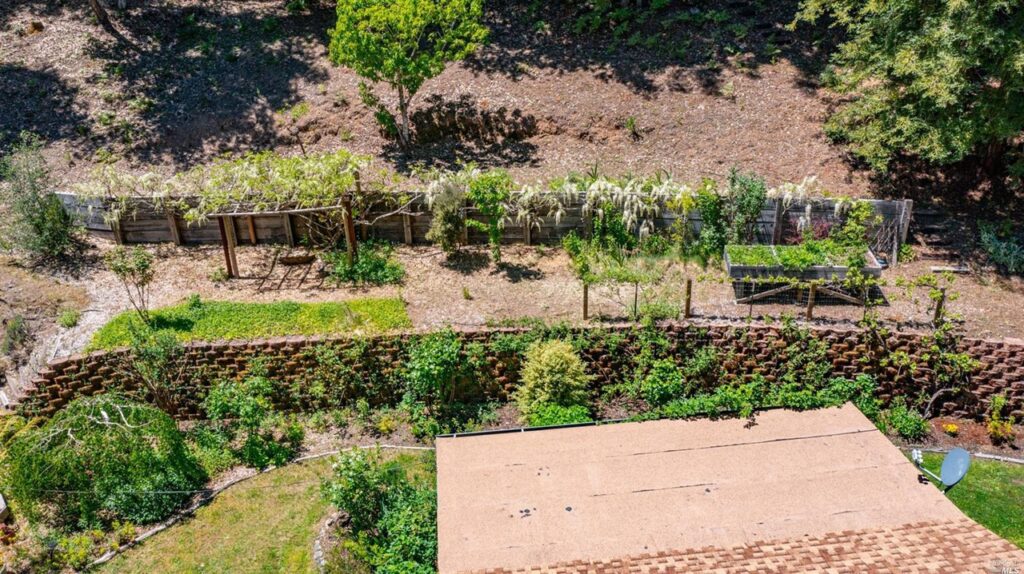
Falling somewhere in the middle between regular flower beds and pots are raised flower beds. Having a raised garden bed is nice since it allows you to easily organize your garden design while taking advantage of different heights.
I find that raised beds work especially well in areas where the ground isn’t ideal for growing your preferred plants. Being separated from the ground allows you to control the soil inside of the beds, making it more likely that your plants will grow as you’d hoped.
Vertical Options

Another one of my favorite gardening ideas for side of house is taking the vertical approach. There are a few different ways to do this: you could use climbing plants to create a privacy fence, make a vertical garden, or simply hang a few plants over a fence for a dash of color.

If space is a limiting factor but you’d still like to take advantage of the vertical approach, consider grabbing yourself a portable greenhouse. This will allow you to continue growing more plants without the need to dedicate existing space for your newest plants.
Don’t Forget the Entrance

I’ve mentioned the entrance a few times so far, but there are a few things I wanted to go over in a bit more detail. Before I go over those, though, I invite you to take a look at your current entrance.

Does it get full sun, part shade, or full shade? Is it a large area, or are you stuck working within small spaces? Take note of these factors, as they will either open up—or limit—the entrance options you can test.
Pots & Hanging Plants

You really need to place a few pots near your entrance, guys! Even if you don’t have a lot of garden space, grass, or usable lawn area, simply having a few potted plants near your entrance can help bring a sense of peace to the area.
For those of you with a larger space (such as a deck), consider turning the space into a sort of dedicated plant area. Place hangable plants—like this Golden Pothos—and vines alongside your potted plants for a more complete look.
Lastly, while sunny days will give you all the light you need during the daytime, you’ll want to start considering some outdoor lighting. Optimizing your lighting situation will help your plants look as good at night as they do during the day.
A Few Suggestions
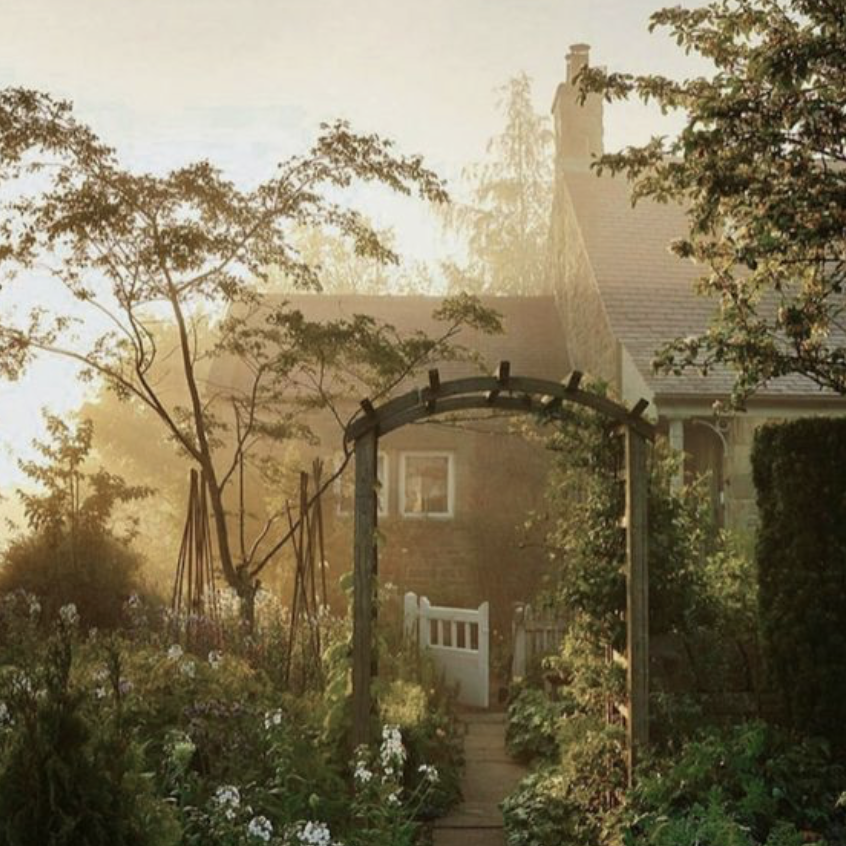
By now, hopefully, you’ve picked up a few new gardening ideas for side of house, front of house, and the rear of your house. Question is, what should you put there?
Well, before you start picking up new plants, I’d first figure out which USDA zone you live in (especially if you’re going for something exotic). Different USDA zones are best suited for different types of plants, and you definitely want to pick up something that is sure to thrive in your area.

It’s also worth taking note of the season. Generally, planting during the late spring or early summer is a good option, although some flowers can still do well if not planted until the late summer. Just do a bit of research for your specific plant before you start shopping.
The “shining stars” of your garden are up to you, but here are a few plants that can work great for much-needed ground cover!
Yellow Archangel
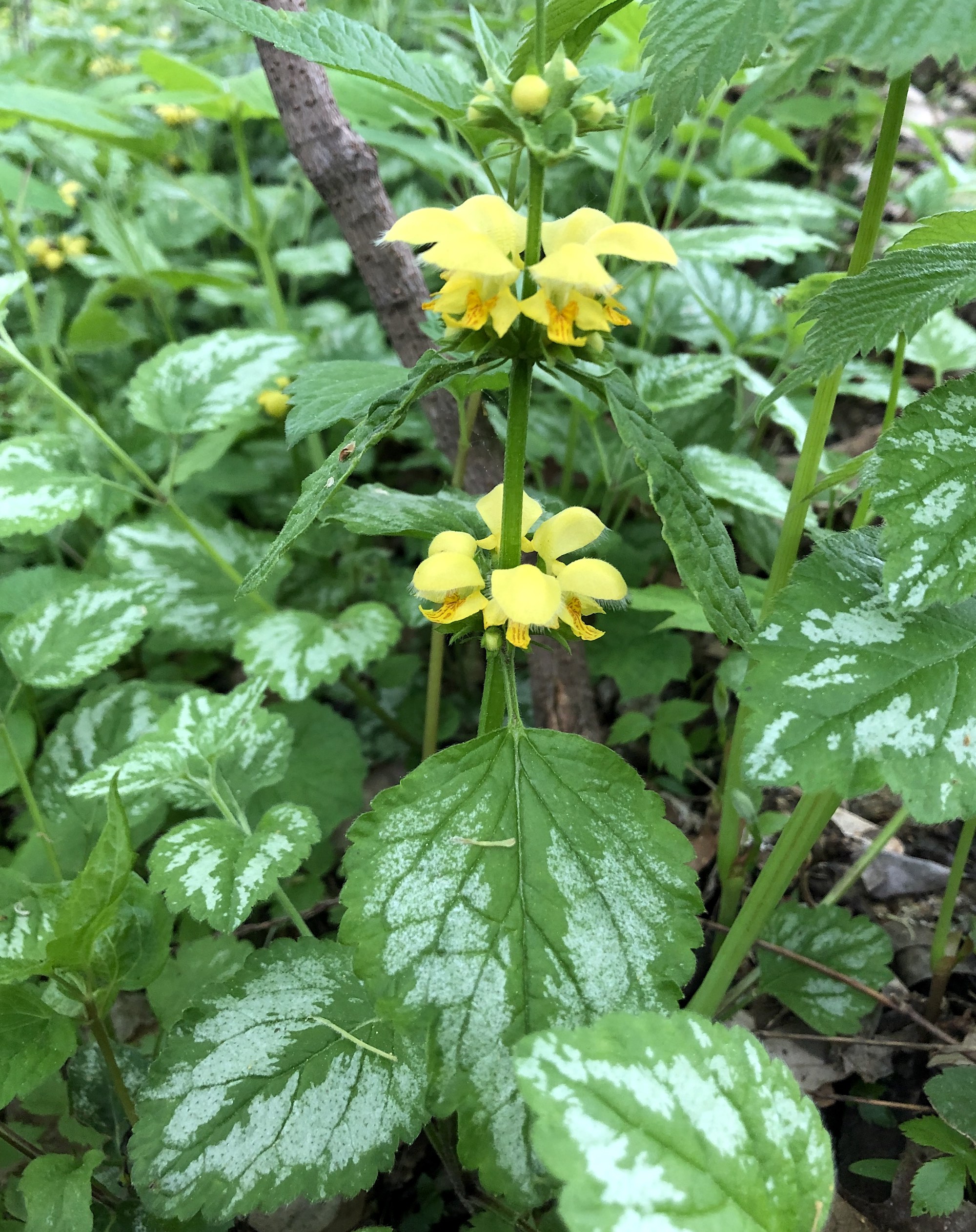
Perfect as ornamental ground cover, the Yellow Archangel is a low-maintenance plant with deep green foliage and yellow tube-shaped flowers. It spreads quite quickly with minimal effort required from you, but it’s also considered invasive in some areas.
English Ivy

English Ivy, also known by its common name, “Hedera Helix”, is a low maintenance plant that works excellently to cover both the ground and nearby trees. These climbing plants are a good choice for people who don’t have pets. However, if you have pets, I wouldn’t recommend English Ivy as it’s toxic to both humans and pets.
Japanese Pachysandra

This evergreen perennial will provide year-round ground coverage, yellowing slightly during the winter. Like the previous plants, Japanese Pachysandra can spread quite quickly, making it deemed an invasive plant in some areas. Still, it is quite hardy, making it reliable for hot, dry, and less forgiving climates.
As an added bonus, this plant will even adorn the area with white flowers come springtime!
Lily of the Valley

If you need a bit more coverage in the shadier areas in your yard then the Lily of the Valley might be a favorable option. Unlike many other plants, it thrives in the shade, although it can tolerate partial shade to an extent. Depending on the type you get, your plants will have either pink flowers or small white flowers.
This plant is highly toxic to both humans and pets, so I can’t recommend it to pet owners or those with small children.
Succulents

You must have known I was going to throw these in here! Perfect for areas with lots of direct sunlight and limited water, succulents are some of the hardiest plants around. You’ll never have to worry about them getting too much sun.
Aside from being heat and drought resistant, one of the best parts of succulent plants is just how many varieties there are. With over 10,000 options to choose from, you shouldn’t have any trouble finding the perfect one(s) for your yard!
The Takeaway

There are really an unlimited number of gardening ideas for side of house, front of house, and rear of house that you can try out. There are some things I haven’t even covered yet, such as making a dedicated herb garden or sectioning off a space specifically for vegetables.
As I mentioned in the beginning, decorating a home is a constant work in progress. As long as you have a garden area and a bit of creativity, I’m sure you’ll be able to put the area to good use.

Be sure to let me know which garden ideas you liked the best, which ones you’ve already implemented, and which ones you plan on trying. I always love hearing from y’all – thanks for reading!
Want more plant-based reading material? Check out this post on my favorite houseplants!
Gardening Ideas for Side of House: Frequently Asked Questions
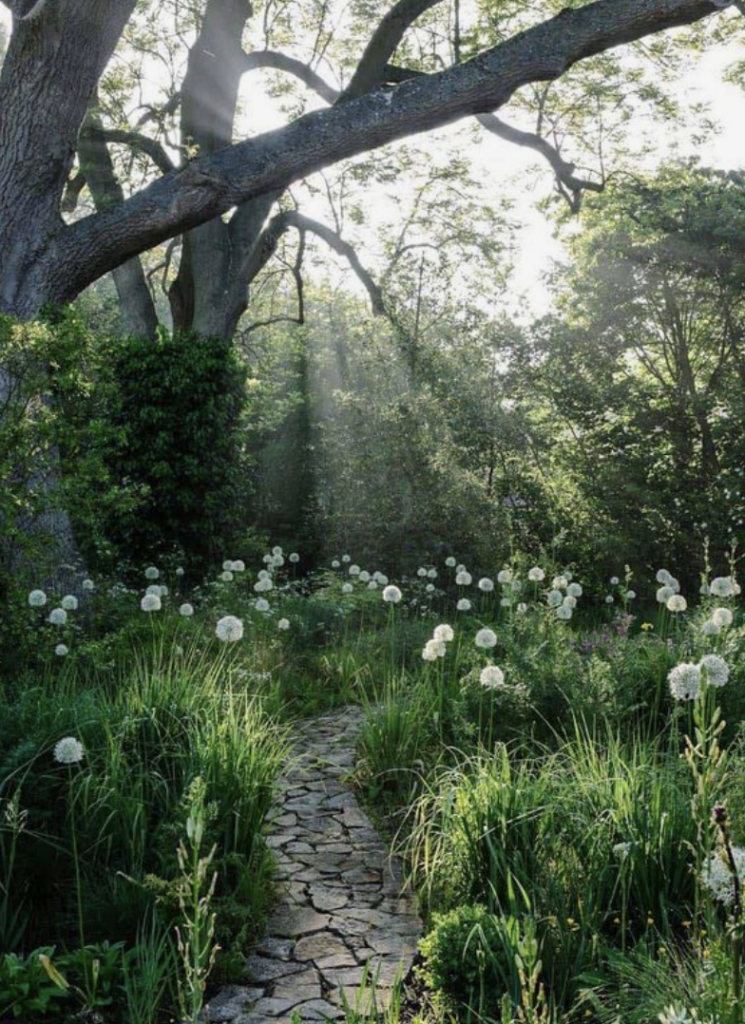
What do you put on the side of a house where nothing grows?
There are a ton of great choices for this, but I’d suggest going with either mulch or gravel. If you’ve tried out a few different low-growing plants and haven’t had any luck so far, chances are, the soil types and growing conditions just aren’t enough to promote new growth.

By placing mulch or gravel, you still get the look of a well-kept yard without needing to worry about constantly struggling your plants alive in less-than-ideal conditions.
What should you not plant near a foundation?
While growing plants or shrubs next to your house is generally fine, placing trees near your foundation is never a good idea. It might not happen immediately, but eventually, the root system will spread out, causing extensive damage to your foundation over time.
How can I make my side yard look nice?
Ideally, you’ll want to have a bit of visibility down the side of the house. This is a great way to make your backyard appear bigger than it is. The side is also the perfect place for a bench, chair, or statue to sit, as this great addition will give your side yard a focal point.
What is the best material for a side yard?
It really depends on how often you use the area, as well as the size of the space. If it’s a frequently traveled, narrow space then having a concrete walkway—which can be decorated around—might be the most practical option. If not, then mulch, gravel, pavers, or stepping stones are possibilities. When in doubt, well-maintained grass is always a great choice!
What is the best low maintenance landscape edging?
While many people are satisfied with plastic edging, if you want the best of the best with as little maintenance as possible then I’d recommend paying a bit extra for metal edging. Durable, weather-resistant, and easy to install, metal edging is the perfect option for those who want to pay as little attention as possible once the install is over with.
What is the least expensive landscaping material?
This one is hard to answer, as the answer changes depending on where you live, what sales are going on, and a number of other factors! Honestly, I’d suggest just saving up, waiting for a sale, and striking while the iron is hot.
Mulch provides great ground cover but it requires consistent weeding and will eventually need to be replaced. Pea stones are extremely cheap and can be treated with a bit of weed killer, making them excellent ground covers for a low-maintenance yard. Sand is also great for covering large areas, and you can often find rocks for cheap—or for free—if you want a bit of variety.


